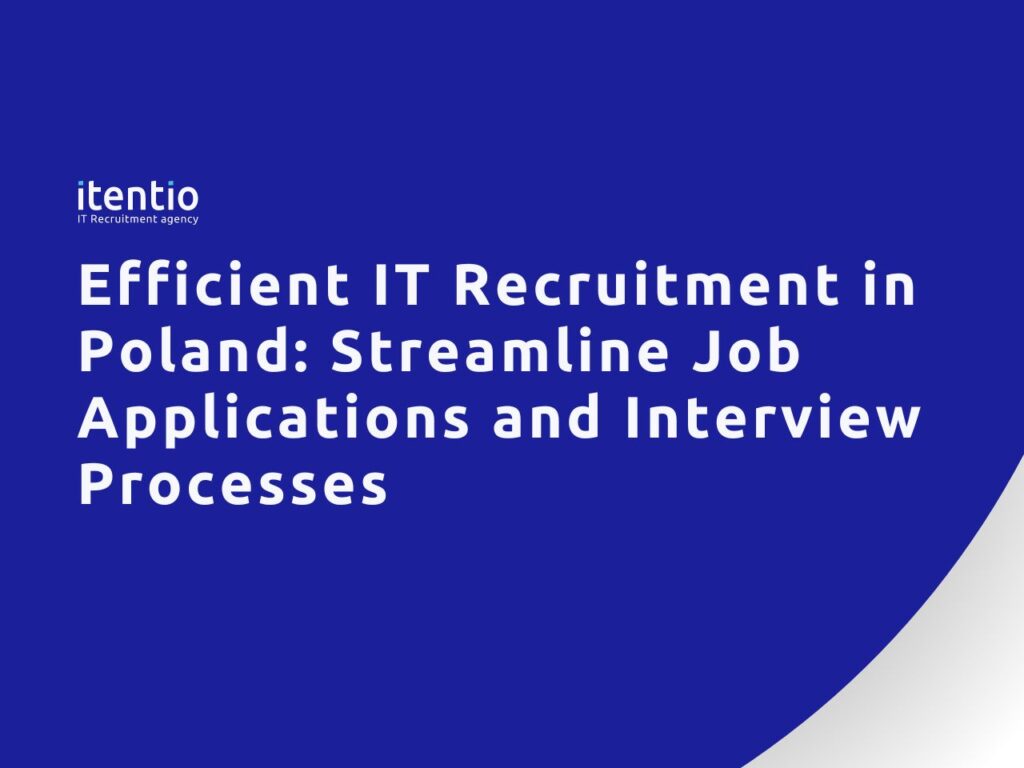The landscape of work undergoes perpetual evolution, a phenomenon amplified in the wake of the COVID-19 pandemic. With a surge in remote, flexible, and autonomous employment arrangements, a novel archetype emerges: the “manager of one”.
Introduction: Who Is the Manager of One?
Coined by Jason Fried, co-founder and CEO of Basecamp, the term “manager of one” finds its roots in the ethos of a company long accustomed to remote operations since 1999. Within the pages of “ReWork” by Jason Fried and David Heinemeier Hansson, the paradigm of “Managers of One” takes shape, describing them as people who come up with their own goals and execute them.
A manager of one embodies self-direction, self-governance, and autonomy, adept at setting objectives, orchestrating tasks, and delivering outcomes independently. This paradigm also embodies traits of efficiency, accountability, and creativity, fostering proficient communication, collaboration, and problem-solving.
Such individuals are motivated, proactive, and continually evolving, driven by innate motivation rather than awaiting external validation.
While self-management offers myriad advantages, including elevated adaptability, autonomy, and fulfillment, it also presents challenges such as loneliness, interruptions, and burnout. Thus, determining the conditions for effective self-management and navigating potential obstacles becomes crucial.
This article delves into the “manager of one” archetype, exploring its merits and pitfalls while offering insights into cultivating self-directed management prowess, particularly within the tech sector.
What Are the Characteristics of a Manager of One?
The hallmarks of a manager of one transcend mere self-directed employment, but an individual possessing distinct attributes setting them apart from their counterparts and facilitating efficient self-managed operation. These defining traits of the manager of one encompass:
- Proactiveness: Exhibiting an absence of reliance on instructions, the manager of one proactively determines tasks, methodically formulates objectives, plans actions, and arranges priorities autonomously. Furthermore, they actively pursue new prospects and projects aligned with their competencies, preferences, and objectives.
- Self-governance: Avoiding dependency on external guidance, the manager of one makes independent judgments and decisions, affording themselves the right to select methodologies, tools, and strategies helping to deliver desired outcomes. Concurrently, they support the autonomy of others, refraining from unnecessary interference in their work.
- Responsibility: Foregoing blaming others or alibis, the manager of one assumes complete ownership of their actions and outcomes, embracing accountability. Moreover, they diligently monitor and evaluate their performance, communicating progress and accomplishments transparently while engaging in constructive feedback exchanges.
- Efficiency: Discerning between consequential and inconsequential tasks, the manager of one focuses efforts toward pivotal objectives with precision and efficiency, streamlining workflow and eliminating redundant or repetitive tasks. Additionally, they adeptly manage temporal, cognitive, and resource allocation, mitigating distractions and interruptions.
- Communication: Disregarding solitude and silence, the manager of one fosters effective and regular communication across diverse stakeholders, employing varied mediums and formats tailored to audience and intent. Their speech is characterized by clarity, briefness, and deference, underscored by active listening and perceptive questioning.
- Collaboration: While autonomous in operation, the solitary manager collaborates harmoniously with peers, leveraging diverse perspectives and competencies to realize shared objectives. Valuing and respecting diversity, they cultivate an atmosphere of mutual trust and esteem.
- Continual Learning: Uncompromising in their pursuit of knowledge and growth, the solitary manager remains receptive to unexplored insights, continually augmenting their skill set and adaptability in response to evolving challenges.
Exploring the Pros and Cons of Being a Manager of One
The role of a manager of one presents an overload of advantages and disadvantages, based on individual predispositions, organizational dynamics, and contextual factors. Below, we delineate the pros and cons of assuming the role of a manager of one.
Advantages
- Flexibility: Embracing the role of a manager of one grants unparalleled flexibility in crafting one’s work schedule, choosing a preferred location, and dictating the pace of work. This autonomy empowers individuals to operate on their terms, fostering a harmonious work-life balance while concurrently reducing operational costs for employers.
- Freedom: The liberty inherent in solitary management enables individuals to exercise decision-making authority, pursuing tasks aligned with individual preferences and objectives. This autonomy catalyzes problem-solving prowess, fuels creativity, and fosters an environment of trust and accountability, ultimately culminating in superior organizational outcomes.
- Satisfaction: Managers of one feel heightened satisfaction from the intrinsic connection between their endeavors and resultant outcomes. The clarity of impact and recognition instills a profound sense of fulfillment, strengthened by increased feedback, appreciation, and rewards from stakeholders. Such gratification augments motivation, engagement, and loyalty, fortifying organizational cohesion and performance.
- Performance: Managers of one indicate enhanced performance across various metrics, displayed by heightened efficiency, effectiveness, and productivity. Unencumbered by redundant tasks or external dependencies, they navigate workstreams adeptly, delivering innovative solutions and consistently superior results. This elevation in performance augments the organizational value proposition, elevating the quality, quantity, and consistency of outcomes.
Disadvantages
- Isolation: The solitary nature of managerial autonomy can cause feelings of isolation, alienation, and disconnection from professional networks. This sense of detachment, exacerbated by remote or independent work arrangements, deprives individuals of the social, emotional, and developmental benefits inherent in collaborative environments, thereby compromising overall well-being and organizational culture.
- Distraction: Managers of one can grapple with heightened exposure to distractions within their work environments, impeding focus and productivity. External stimuli such as noise or digital notifications, coupled with internal factors like weakening motivation, pose significant challenges to sustained concentration and task completion accuracy, deepening organizational inefficiencies.
- Stress: The multifaceted demands of solo management plant elevated levels of stress, arising from the sheer volume, complexity, and urgency of tasks. The weight of responsibility, coupled with exacting performance standards and tight deadlines, precipitates feelings of overwhelm and anxiety, manifesting in adverse physical and psychological health outcomes for individuals and organizations alike.
- Burnout: The relentless pursuit of excellence inherent in the management of one can cause burnout, characterized by sustained periods of intense work without adequate rest or respite. Whether driven by passion or ambition, this unrelenting pursuit of productivity exacts a toll on individuals’ energy reserves and enthusiasm, posing retention and performance challenges for organizations.
In conclusion, while assuming the role of a manager of one offers unparalleled autonomy and potential for personal growth, it also poses inherent challenges necessitating proactive mitigation strategies for optimal outcomes.
Strategies for Excelling as a Self-Managed Professional
Mastering the art of solitary management is a journey that unfolds over time, requiring the cultivation of specific skills, routines, and mindsets conducive to effective solo and collaborative work. Below, we outline vital skills, habits, and attitudes essential for achieving success as a solitary overseer:
- Goal-setting: A manager of one must establish clear, measurable objectives that serve as guiding principles for their endeavors. Utilizing frameworks like SMART or OKR facilitates the creation and monitoring of goals aligned with personal and professional aspirations, subsequently breaking them down into manageable tasks with assigned deadlines and priorities.
- Planning: Effective planning is paramount for a manager of one to translate goals into actionable steps. Leveraging tools such as Trello, Jira, or Asana aids in creating and organizing plans, ensuring flexibility and adaptability to changing circumstances. Regular review and adjustment of plans based on progress and feedback are imperative for sustained success.
- Self-discipline: Maintaining unwavering self-discipline is essential to adhering to plans and completing tasks without surrendering to distractions or procrastination. Techniques such as the Pomodoro method or apps like Forest foster focus and accountability, complemented by setting personal boundaries and rules to minimize interruptions.
- Self-motivation: A high level of self-motivation empowers managers of one to overcome obstacles and setbacks, persisting toward their objectives with unwavering determination. Utilizing gamification tools like Habitica or Todoist infuses a sense of fun and reward in tasks, supplemented by regular reminders of purpose, passion, and progress.
- Self-evaluation: Regular self-assessment enables managers of one to gauge performance, identifying strengths, weaknesses, and areas for improvement. Leveraging internal company tools or third-party platforms aids in objective evaluation and benchmarking, fostering continuous growth and development.
- Self-improvement: A commitment to lifelong learning is indispensable for managers of one to remain agile and adaptable in the face of evolving trends and challenges. Accessing online courses through platforms like Coursera or Udemy facilitates skill acquisition and knowledge enhancement, while consuming and creating content on platforms such as Medium or TED fosters intellectual stimulation and exchange of ideas.
- Communication: Effective communication is the pillar of successful solitary management, facilitating clarity, conciseness, and respect in sharing and receiving information. Leveraging tools like Slack, Zoom, and Discord enables seamless collaboration with colleagues, clients, and partners, complemented by enhancing writing skills through platforms like Grammarly or Hemingway for professional communication.
- Collaboration: Cultivating collaborative skills enables managers of one to leverage collective expertise towards common goals, fostering synergy and innovation. Platforms like Google Workspace, Microsoft OneDrive or Dropbox facilitate real-time document sharing and collaborative editing, while visual collaboration tools like Figma, Miro or Mural streamline project collaboration and ideation.
- Learning: Embracing a culture of lifelong learning equips managers of one to stay up-to-date with industry trends and opportunities, fostering adaptability and growth. Curating content through tools like Feedly or Flipboard enables access to diverse perspectives, while language-learning platforms like Duolingo or Memrise broaden linguistic and cultural horizons.
Conclusion
In summary, while the paradigm of a ‘manager of one’ demands dedication, its adoption indicates a new era of productivity for individuals and organizations alike. Embracing self-directed work catalyzes professional growth and organizational success.
Becoming a proficient manager of one necessitates the cultivation of specific skills, habits, and mindsets facilitative to collaborative efficiency. Throughout this article, we have explored the essence of solitary management, delving into its advantages, challenges, and the path to mastery. Additionally, we have shared insights and strategies for thriving as a manager of one in today’s dynamic workplace landscape.
We hope this article has been valuable and informative for you. If you have any thoughts, questions, or experiences to share on the topic of the manager of one, please feel free to leave a comment on our social networks or contact us directly. You can also subscribe to our social media (Linkedin and Facebook) to avoid missing our new content and updates.
If you have any questions or need assistance with your IT recruitment needs, please get in touch with us. We are happy to work with you and help you find the best talent in Poland and Central and Eastern Europe for your business growth! If you want to get more free information on How to Hire Top IT Talent in Poland, you can download our free guide below →
Comprehensive Guide For Tech Companies:
How to Hire Top IT Talent in Poland Without Cost Implications
Even If You Have No Hiring Experience in the Polish Job Market




